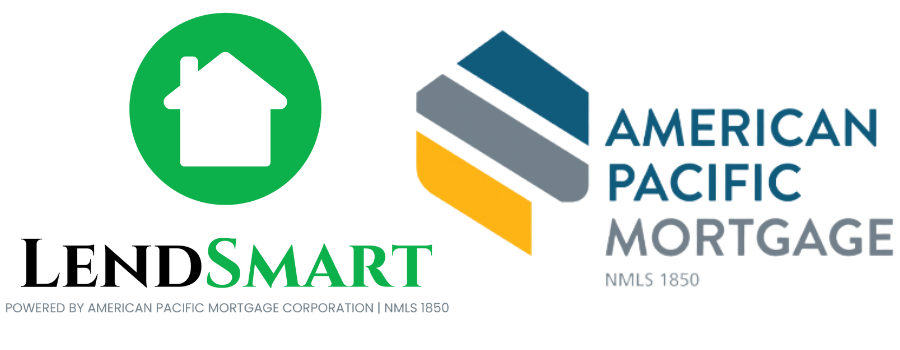Your Guide to Home Loan Pre-Approval: Frequently Asked Questions
As a mortgage loan officer, one of the most common questions I get from homebuyers is about the pre-approval process. It’s an essential step in your journey to homeownership, but it can feel a bit daunting if you’re unfamiliar with how it works. Understanding what pre-approval is, why it matters, and how to prepare for it can help ease your nerves and set you up for success.
In this blog post, I’ll walk you through some of the most frequently asked questions (FAQs) about the home loan pre-approval process to help you feel confident and informed as you take this important step.
1. What is a home loan pre-approval?
Pre-approval is the process by which a lender evaluates your financial situation and determines how much you’re eligible to borrow for a home purchase. It’s more thorough than pre-qualification and involves a detailed review of your financial documents, including your income, credit score, and debts. Essentially, a pre-approval gives you a clear picture of your borrowing capacity and shows sellers that you’re a serious buyer.
2. How is a pre-approval different from pre-qualification?
Pre-qualification is an initial step where you provide basic information to the lender, such as your income, debts, and assets. Based on this, the lender will give you an estimate of how much you may be able to borrow. However, pre-qualification isn’t as in-depth or reliable as pre-approval.
Pre-approval, on the other hand, involves a deeper dive into your financials. Your lender will verify your income, check your credit report, and look at your debts and assets. With pre-approval, you get a more accurate estimate of how much you can borrow, and it carries more weight when you make an offer on a home.
3. Why is pre-approval important?
Pre-approval is important for several reasons:
- Shows seriousness: Sellers are more likely to take you seriously when you’ve been pre-approved. It shows that you’re ready to buy and have the financial backing to make an offer.
- Establishes your budget: Pre-approval helps you understand exactly how much you can afford, ensuring you don’t fall in love with a home that’s out of your price range.
- Saves time: Pre-approval speeds up the home buying process because many of the steps are already completed, allowing you to move quickly when you find the right home.
- Improves your chances in a competitive market: In competitive real estate markets, being pre-approved can give you an edge over other buyers who aren’t pre-approved.
4. What documents will I need to provide for pre-approval?
To get pre-approved, you’ll need to provide several financial documents so the lender can verify your ability to repay the loan. Commonly requested documents include:
- Proof of income: Recent pay stubs, tax returns, or W-2s (or 1099s if you’re self-employed).
- Credit report: The lender will pull your credit report to assess your credit score and history.
- Bank statements: Recent statements for your checking, savings, or investment accounts.
- Proof of assets: Information about any other assets, such as retirement accounts, stocks, or bonds.
- Debt information: Details about any current debts, such as credit cards, student loans, or car loans.
Having these documents ready will help streamline the pre-approval process and ensure you’re prepared when it’s time to apply.
5. Does pre-approval guarantee that I will get the loan?
No, pre-approval does not guarantee that you will get the loan. It’s an indication that, based on the information you’ve provided, you’re likely to be approved for a loan up to a certain amount. However, there are still factors that could affect your final approval, such as:
- Property appraisal: The home you want to buy must meet the lender’s requirements and be appraised at or above the sale price.
- Changes in your financial situation: If your financial circumstances change (e.g., loss of income, new debt), it could impact your final approval.
- Final underwriting: After you make an offer and your purchase agreement is in place, your loan will go through a final underwriting process, where the lender will review all your information one more time before the loan is finalized.
So, while pre-approval is a critical step, the final approval is still subject to additional factors.
6. How long does the pre-approval process take?
The pre-approval process is generally quick, especially if you have all your financial documents ready. In most cases, you can get pre-approved within a few hours to a couple of days. However, if your financial situation is more complex or if the lender needs additional information, it could take a bit longer.
The important thing is to work with a lender who can guide you through the process efficiently and ensure there are no surprises along the way.
7. How long does a pre-approval last?
A pre-approval letter typically lasts for about 60 to 90 days. After this period, you may need to update your information, especially if there have been significant changes to your financial situation, such as a new job or a change in income. If you’ve been looking for a home for a while and your pre-approval is about to expire, don’t worry—getting re-approved is usually a simple process.
8. Can I get pre-approved for a home loan with bad credit?
Yes, it’s possible to get pre-approved with less-than-perfect credit, but it may be more challenging. Lenders typically prefer a higher credit score (620 or above for most conventional loans), but there are still options available for buyers with lower scores. FHA loans, for example, are designed for borrowers with lower credit scores (as low as 580 with a 3.5% down payment).
If your credit score is a concern, don’t give up hope! Work with a mortgage loan officer who can help you understand your options and find a loan that works for you.
9. Will I be charged for pre-approval?
Pre-approval itself is usually free. The lender may run a soft credit inquiry, which won’t affect your credit score, and there are no upfront fees for getting pre-approved. However, when you move forward with the mortgage application after you find a home, there will be fees associated with the full loan application and processing.
10. Should I get pre-approved by more than one lender?
It’s a good idea to shop around and get pre-approved by multiple lenders. Different lenders may offer different interest rates, loan products, and fees. Getting pre-approved by more than one lender allows you to compare offers and choose the one that best fits your needs.
Just make sure to get all your pre-approvals within a short window (typically 30 days) to minimize any potential negative impact on your credit score.
Conclusion: Ready to Get Pre-Approved?
The home loan pre-approval process can seem like a lot to navigate, but with the right preparation and guidance, it doesn’t have to be overwhelming. As a mortgage loan officer, I’m here to help answer any questions you have and ensure you’re set up for success. A pre-approval letter is a powerful tool in your homebuying journey—it helps you understand your budget, shows sellers you’re serious, and ultimately gets you one step closer to homeownership.
If you’re ready to get started, reach out today! I’m here to guide you through the pre-approval process and help you find the perfect loan for your dream home.


